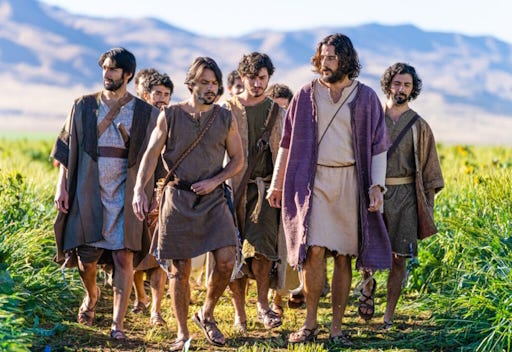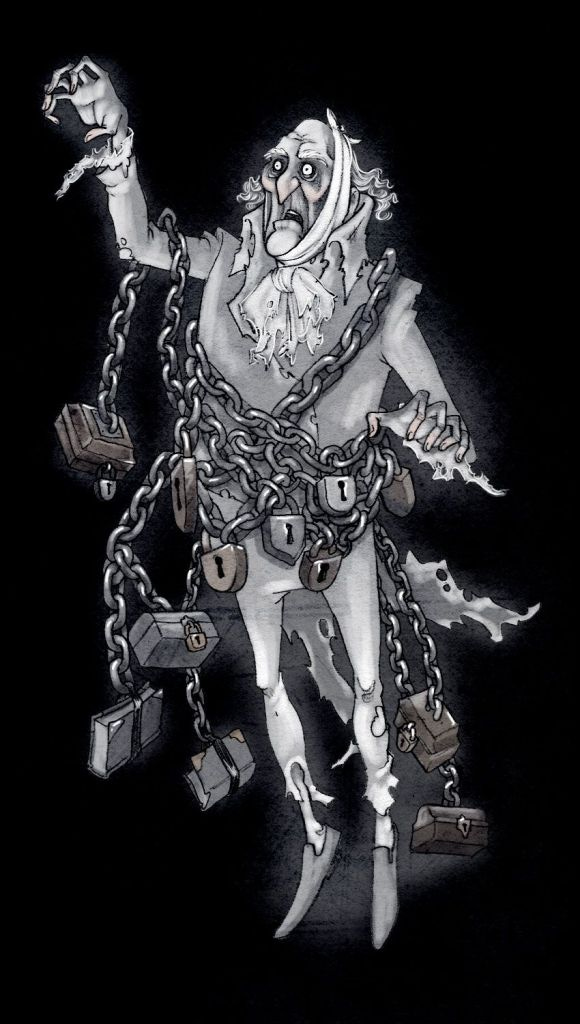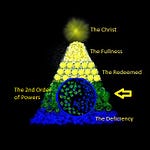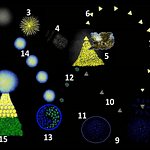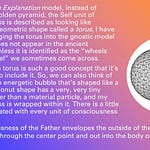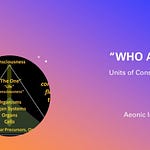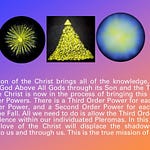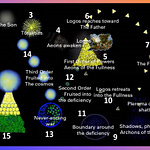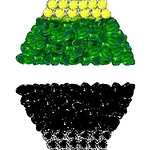Welcome back to Gnostic Insights. Lately, people have been asking me to translate Bible verses—to give my Gnostic Gospel version of familiar Bible verses. And, boy, I would love to do that. I mean, I could read for you the entire New Testament from end to end and translate it into the Gnostic Gospel, and perhaps that would be a good book project to do.
I have hesitated doing such a thing here on Gnostic Insights because I don’t want people to misunderstand and think that this is just another Christian radio program. There are particular differences between the Gnostic Gospel and conventional Christianity, yet there is more in common with Christianity when you read it with an open heart and an open mind. So this morning I’ll look at some very famous Bible verses out of the book of Matthew, and this is when Jesus was preaching to the multitude. This is out of a long speech by Jesus.
By the way, I really have been enjoying that television series called The Chosen. If you’ve never seen The Chosen, they have their own app. You can download it, for example, on Roku, the Chosen app, and then you can watch all of the episodes. You can catch episodes here and there on various platforms. They’re all really good, and it is yet another depiction of the life of Jesus and the disciples. But this television series, which has four seasons so far, and I think they’re going to go to five seasons, they have a lot of backstory and a lot of historical settings and things that aren’t particularly quoted out of the Bible, yet they are true. And like any screenplay that has been adapted from a book, the narrative isn’t exactly the same as the books. Sometimes characters are deepened or collapsed with other characters in order to carry the story forward, and that is the spirit by which The Chosen has been written, which brings criticism from some evangelical Christians. They don’t like the fact that The Chosen “makes up stuff.” But I feel that that is actually immaterial, because the important part carries on. The important truth of the Scripture is in there and brought to life in such a way that you can relate to it, or you can watch it like a television show or a movie. It’s a very gripping story. So I recommend that you look up The Chosen. You might enjoy it.
Now let’s look at some Bible verses out of the book of Matthew, and as I like to do, I am using the translation by David Bentley Hart, which is what he calls a pitilessly accurate translation. He doesn’t change the translation of the New Testament the way so many versions of the Bible do. So let’s look at this. This is out of chapter 6, verse 19.
Do not store up treasures for yourself on the earth, where moth and rust destroy, and where thieves penetrate by digging and stealing. Rather, store up for yourselves treasure in heaven, where neither moth nor rust destroys, and where thieves neither penetrate by digging nor steal. For where your treasure is, there your heart will also be.
Now this verse contrasts materialism and spirituality on a practical level. We live in a very affluent age, particularly if you’re living in one of the western countries. We have, for the last 100, 200 years at least, been living very high on the hog, as if we’re all kings and queens. And we have treasures. We have to have this, and we have to have that. We see things advertised, and we immediately have to get it. We photograph those QR codes off the screen, and bingo, a week later we have the product.
And people who don’t know God, people who are cut off from their spiritual aspect, which we here at Gnostic Insights call your Self, that’s the part of us that we all share in common. That is the Fullness of God that dwells within us, the Self. But we all also have an ego, and it’s our ego that’s particular to us—that’s our name and address and all of the memes we cling to that give us meaning in our life. And when we soak up advertising or soak up social media and become envious of what we think other people have or what other people are enjoying, and then we want it for ourselves, that’s egoic. That’s your ego taking care of your personal needs. But the ego overreaches. We don’t need all the things we think we need or want.
So here we are living in our homes or our apartments, surrounded by all of this material wealth, by all these doodads and gadgets—buy this equipment and that clothing and this kind of makeup and that kind of food. We’re just surrounding ourselves with things that we have taken in because other people told us we need to. That’s the purpose of advertising, to build up desire in you, to build up a need and a desire so that you will eventually take it in. And that’s how people make money.
That isn’t the way to acquire things. That is a wrong path. And the reason it’s the wrong path is because material objects can never fill the aching and the need that’s in the human heart. We are hardwired to seek the transcendent. People who do not realize this, who have not remembered any of their gnosis at this point, they think it’s all made up. They think it’s all fairy tales. So many times I’ve heard people tell me, oh, that’s just a fairy tale. That’s just what you think. You can’t prove that it’s true.
Well, the thing is, all of us who have begun to walk through the path of gnosis to find the truth of the ethereal, we all are treading that same path. And that’s another famous Bible quote:
The way is wide that leads to destruction, but the path to God is narrow.
Now, that one’s often interpreted to mean that there’s only one way to God, one way, and that one way, the Christians say, is Jesus Christ.
The Gnostic gospel also believes there’s only one path, one way, but that path is gnosis. And Jesus points the way to the gnosis, and eventually we will all accept the redemption of the Christ, because you can’t make it all the way back to the ethereal plane carrying around these bundles of memes that we’ve acquired here on Earth. These attachments, these material possessions, they weigh us down like Marley’s chains in The Christmas Carol by Dickens.
There is only one way to the ethereal plane, and all of us who are on that Gnostic path, we find ourselves having the same experiences. We do share visions. We do have the same expectation of heaven. We begin to remember the place that we came from, because according to the Gnostic gospel, and it is my contention, that the reason we all have a foretaste—and when I say all, I mean all cultures—everyone around the Earth has a foretaste, an expectation of what we call heaven or paradise. Now, how could we all be sharing that same expectation? It’s because that’s where we come from. We are the children of the Aeons in the pleroma of the Fullness of God, also known as paradise.
When you see the Fullness of God in the New Testament, it’s the pleroma of God, which is everything that’s possible. It’s not just that God’s a big, great guy, and he’s so huge and ungraspable—the fullness. That isn’t what fullness means. Fullness is differentiations of the Source. The Fullness is every variable that can possibly be that was ever imagined by that great, illimitable Source, by the Father, broken out into its distinctive parts. And those parts are the aeons, and the parts with the personalities are what we typically call angels. So we all have this foretaste of heaven because we came from heaven.
We have earthly parents, but we also have what we could call heavenly parents, because we are the children of the Aeons of the Fullness of God. And they sent us down here into this material world in order to help redeem the world, in order to remind the world of paradise, particularly to remind the Demiurge of paradise, because it’s the Demiurge, the forgetful god of the Gnostics, the creator of this heaven and earth. By heaven, I mean the sky, I mean the stars. Everything that is within the envelope or the boundary of the cosmos was created by the Demiurge. And the Demiurge doesn’t remember where he came from or where it came from. And the idea was that the Fullness sent down and populated this otherwise dead cosmos, because the Demiurge only produces material, it can’t produce life because it doesn’t remember what the life is.
All of the life, all of the light, all of the consciousness, all of the love comes down that narrow path into this material world from above. So that’s what it means by “the way is wide that leads to destruction.” That’s if you’re standing here looking around you from left to right, and through history of this material world—that’s all death and destruction because the life doesn’t come from the bottom up. Consciousness doesn’t bubble up out of the mud. It flows down from above, and we carry it into this material universe with ourselves when we’re born. So the tragedy, of course, is that given a few years here on earth, we forget that we are the emissaries of the Fullness of God, and we think that we are mud creatures rising up out of the material world.
So we forget our mission, which was to bring consciousness, and love, and redemption to the Demiurge. We’re here to remind him of life, and love, and the Father, and the Source, and the Aeons above. We get all bogged down by these material possessions, by these treasures we store up for us on earth, and we think the meaning is in the treasure. We think, oh, I’ll only be happy if I just get a Bowflex. Oh, I’ll be so happy if I wear this particular color lipstick. Oh, look at my selfie. Look at my selfie. Oh, aren’t I cute? Aren’t I neat? That’s wrongheaded. That will not bring happiness. That’s a delusion. Happiness can’t come from the material because the material is void. The material is empty.
The material cannot generate consciousness. This is why I doubt that artificial intelligence will actually rise to personhood. It’s going to be a very complicated and rich material object, but it can’t have true consciousness. It can only have, let’s say, egoic consciousness because it’s stuck on the material plane. It rose from the material plane. It’s put together with silicon, and metal, and objects mined from the earth, and information gathered from our informational output on the internet. That’s all lateral. That’s all down. It’s not from above. But consciousness, the true consciousness that predates this universe, comes from above, and it comes through living things.
So, returning to this verse 19 of the sixth chapter of Matthew,
Do not store up treasures for yourself on earth where moth and rust destroy.
In other words, they’re impermanent. They will pass away.
You might have a house fire. You might be robbed. There might be a flood that washes away everything you own. Does all your hope and happiness wash away with it? Well, it does if you consider those to be the purpose of your life. But if you store up treasure in heaven, it says in verse 20,
rather store up for yourself treasure in heaven where neither moth nor rust destroys, and where thieves neither penetrate by digging nor steal.
Of course, remember these verses were written about 2,000 years ago. So, when it talks about moth or rust, obviously, that doesn’t have to be literally brought forward. If you were a nomad living in a tent, you’re worried about moths getting to your wool. If you have metallic objects for tools, you worry about rust. Now we worry about things like identity theft, and how about that electromagnetic pulse that’s going to wipe out all electrical appliances and all of the satellites? These are the kind of things we worry about in the modern age. They are equivalent to moth and rust, and
where thieves neither penetrate by digging nor steal.
So, I guess they used to dig under the city walls, or a lot of homes were fortified, and so the way you breach it is you dig under it. Of course, there’s still a lot of tunneling going on in war zones, or between nations, in order to smuggle people and contraband across borders. It says,
for where your treasure is, there your heart will be also.
So, if you have all of your hope and trust in these objects that you’ve acquired, then there’s no peace in that.
You know, the richer a person is, the more they worry about losing their money. Have you ever done this thought experiment? How much money would you need to have in order to feel safe and wealthy? Would it be a million dollars? Would it be a billion dollars? Would it be $10,000? Maybe only $5,000. What do you need to feel safe? Well, you can’t ever feel safe because no matter what amount of money you select, if you ever reach that goal, if you become a millionaire or a billionaire, well, now you need more. The goalpost is always moving to more, more, more. That’s one of the attributes of this material world—aggregations. Things become larger and larger and larger, and you think the more, more, more you have, the bigger your house, the better you’ll feel.
I live in a rather wealthy little village in Oregon. A lot of well-off retirees live here, and these are people in their 60s, 70s, 80s, and they’ve worked their way up with their money and their savings and their investments, and they have these big, beautiful homes. You know, these big mansions. You’ve got one person or two people living in a huge mansion. I’ll bet you they’re not safe. They’re not happy. They’re rattling around in there. They’re lonely.
The only way to find happiness and peace is to lay up your treasures in heaven. Verse 21 says,
For where your treasure is, there your heart will also be.
So, rather than looking outward, look upward. This is why I always say, onward and upward. We go forward. We don’t think about the past. We don’t mourn over the mistakes. We don’t hold on to grief and anger. Let the past go. Let it go. Ah, that feels good. Onward, that’s forward, and upward. Look to the heavens. Look to the Fullness of God. Look to your Aeonic parents. Look to Jesus. Look to the Christ. Look to the Source. Look to the Father. Those are the true treasures.
And, you know, this life here on Earth, it’s very brief. The time we spend here on Earth is almost meaningless, it’s that brief. I read a very interesting essay this week that my brother shared with me out of the website called Aeon. The essay was about a set of letters that the famous philosopher, logician, mathematician named Kurt Gödel wrote back and forth to his mother as she was elderly and nearing her death. And she asked him about paradise, and she asked him if he really believed in heaven. And this is a very learned man. In fact, this is, well, one of the smartest guys that’s ever walked on the Earth. Gödel was a contemporary and a peer of Albert Einstein, and they worked together at Princeton. Einstein actually looked up to Gödel, so that tells you what a big thinker he was.
And I only mention that because I think it is important to know who your sources are that you’re trusting. You know, when we trust people that are trying to sell us things, who are these people, and what are their credentials to be telling you anything? Or the talking heads on television, the pundits and the people who tell us what to think about things. Well, who the heck are they? Why do you trust them? So I look to big thinkers of the past.
Gödel was one of the big thinkers, one of the geniuses. And this is what he had to say about heaven. In a letter in 1961 to his mother, he said,
If the world is rationally organized and has meaning, then it must be the case. [he’s talking about an afterlife]. For what sort of a meaning would it have to bring about a being, the human being, with such a wide field of possibilities for personal development and relationship to others, only then to let him achieve not even one one-thousandth of it?
So why does Gödel think it’s a rational world? Well, it is rationally organized. You know, the laws of physics have to hold true or we wouldn’t have a universe. It would all fly apart. The laws of chemistry hold true. And by the way, they are rationally organized through the hand of the Demiurge, because the Demiurge had the blueprints. When Logos fell out of the Fullness and broke apart here, creating this material world, he left behind what we call the Demiurge, part of himself. That was the ego. And it’s the ego of Logos that stays down here to build the cosmos. And of course, it’s based upon logic and reason, cause and effect, laws, because, well, practically, we can see by hindsight, if it weren’t, we wouldn’t be here.
But in the Gnostic sense, it was Logos who fell. Logos—logic, rationality, reason. That’s part of the nature of the source. That was the Aeon who had all of the attributes of all the other Aeons and the wherewithal to put them all together into a package. And he thought that he alone could build a material paradise. He was going to make it a gift to the Father. So he took all of that knowledge and he launched himself out of the Fullness without being invited, let’s say. And instead of going up, he went down. And hence comes the material cosmos out of that.
There’s more to that creation story. You can go back to the Gnostic Insights early primer, I call it. If you go to gnosticinsights.com, there’s a tab that’s the basic primer of the Gnostic Gospel. Start with the Father and work your way through. That’ll give you the entire cosmology and cosmogony of the Gnostic Gospel. It is a logical, rationally organized cosmos because it came out of the body of Logos.
And so this brilliant mathematician and logician, Kurt Gödel, says, well, the world is rationally organized and it has meaning. Then there has to be an afterlife because why should we have all these capabilities and then never live long enough to develop it? In the fourth letter to his mother, he says,
What I name a theological Weltanschauung [worldview]is the view that the world and everything in it has meaning and reason, and indeed a good and indubitable meaning. From this it follows immediately that our earthly existence, since it as such has at most a very doubtful meaning, can be a means to an end for another existence.
He says in another letter to his mother,
Does one have a reason to assume that the world is rationally organized? I think so, for it is absolutely not chaotic and arbitrary. Rather, as natural science demonstrates, there reigns in everything the greatest regularity and order. Order is indeed a form of rationality.
Okay, that’s what we were saying. So good, Gödel agrees with me. Here, I’ll read you a paragraph out of the Aeon article itself, and you can go to GnosticInsights.com to read the transcript. I’ll have links to the full article if you’d like to read it.
How does this connect with Gödel’s view that the world is rational and the soul survives death? The incompleteness theorems and their philosophical implications do not in any way prove or show that the soul survives death directly. However, Gödel thought the theorem’s results dealt a heavy blow to the materialistic worldview. If the mind is irreducible to the physical parts of the brain, and the mathematics reveals a rationally accessible structure beyond physical phenomena, then an alternative worldview should be sought that is more rationalistic and open to truths that cannot be tested by the senses. Such a perspective could endorse a rationally organized world and be open to the possibility of life after death.
And I’m reading all of this to you out of an article by Alexander T. Englert, who is a research associate at the Institute for Advanced Study in Princeton, New Jersey, which is where Einstein and Gödel also worked. And the name of the article is We’ll Meet Again.
So there you go. We started with the New Testament, we worked our way through some of the Gnostic Gospel, and we wound up with a big brain philosopher mathematician, and we all seem to agree.
Detach yourself from the materialistic world. At least, it’s okay to have the things that you have but don’t make them your treasures. Don’t put your heart and soul into them. Don’t think that buying things and showing them off will bring you happiness or peace, because it won’t. It simply can’t. And I think you know this. You don’t need me to tell you that. And having more and more just makes you more and more fearful of losing it. So that doesn’t work either. “Lay up rather treasures in heaven where neither moths nor rust doth corrupt,” as it said in the King James Version.
Hey, if you are getting something out of these Gnostic gospel messages, please consider donating. You know, I really hate asking for money. I loathe it. However, if we’re going to get this Gnostic Reformation off the ground, the money that you donate will go into that. It will go into promotion, because we want to get this word out to more and more people. People are lonely. People are hurting. People are afraid. People don’t remember God. People don’t remember Gnosis. People are running down the wrong rabbit holes. Let’s bring them some truth, and some hope, and some life. Let’s point the way to the source.
You can be a part of that, a very important part. Thank you very much.
Happy New Year. God bless us all, and onward and upward.



